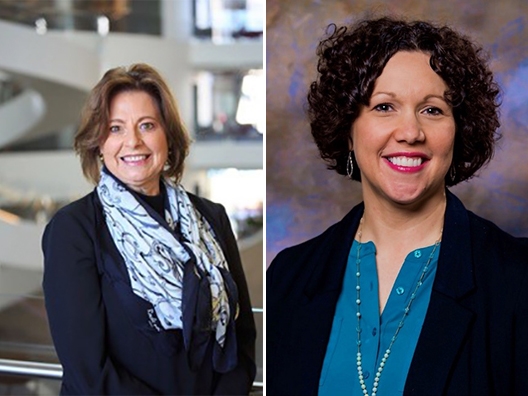
Creating cultural competency is essential on college campuses, in our communities and in the workplace.
Margaret Miller Butcher, assistant professor of communication in U of A's Fulbright College of Arts and Sciences, and Jackie Mosley, professor of human development and family sciences in the Dale Bumpers College of Agricultural, Food, and Life Science's School of Human Environmental Sciences, created a set of videos exploring student notions of cultural competency to help move them along a continuum from monocultural to intercultural mindsets, based on the Intercultural Development Inventory.
Students in Butcher's Intercultural Communication class and Mosley's Multicultural Family class were instrumental in early plans for the project, but once classes went remote last year, the focus shifted.
This summer, after tweets from #blackatuark surfaced and as campus facilities began to reopen, Butcher and Mosley organized their former students and student leaders from across campus to share their insights into cultural competency and the need for cultural acceptance in our communities. The result is a series of five videos on creating cultural competency. With the help from U of A Global Campus video services, these videos were shot and edited along the perspectives of denial, polarization, minimization, acceptance and adaptation.
The videos and accompanying video guide are now available as Open Educational Resources. They are free to use for diversity, equity and inclusion trainings in classrooms that focus on social justice topics and in a variety of community contexts.
Butcher and Mosley are both qualified administrators of the IDI and use the IDI as pre- and post-tests in their classes and build data from those classes and other assessment opportunities in classroom teaching and campus and community training.
They completed the project after receiving a grant from the Wally Cordes Teaching and Faculty Support Center just as the pandemic hit last year.
About the University of Arkansas: As Arkansas' flagship institution, the U of A provides an internationally competitive education in more than 200 academic programs. Founded in 1871, the U of A contributes more than $2.2 billion to Arkansas' economy through the teaching of new knowledge and skills, entrepreneurship and job development, discovery through research and creative activity while also providing training for professional disciplines. The Carnegie Foundation classifies the U of A among the top 3% of U.S. colleges and universities with the highest level of research activity. U.S. News & World Report ranks the U of A among the top public universities in the nation. See how the U of A works to build a better world at Arkansas Research News.
Topics
Contacts
Margaret Miller Butcher, teaching assistant professor
Fulbright College, Department of Communication
479-575-3436,
Robby Edwards, director of communications
Bumpers College
479-575-4625,